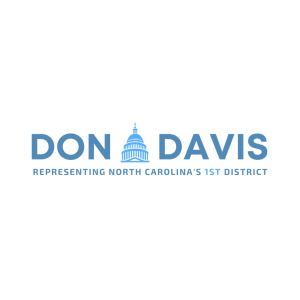Legislation aims to end decade of regulatory uncertainty affecting 831,000 franchise small businesses nationwide
WASHINGTON, D.C. — Two members of Congress from opposite sides of the aisle have joined forces to introduce legislation designed to bring stability to the franchise industry after years of regulatory uncertainty surrounding joint employer rules.
Congressman Don Davis (D-NC-01) and Congressman Kevin Hern (R-OK-01) introduced the American Franchise Act on Wednesday, a bipartisan measure that seeks to clarify when franchisors can be held liable as joint employers alongside their franchisees under federal labor law.
Addressing Regulatory Uncertainty
The legislation comes in response to what lawmakers describe as a decade of shifting joint employer standards that have created costly compliance challenges for franchise businesses across the country. The joint employer rule determines when two separate entities share responsibility for violations of the National Labor Relations Act (NLRA) and Fair Labor Standards Act (FLSA).
According to the bill’s sponsors, these standards have changed four times over the past decade, typically shifting with changes in political control of the White House, creating an unpredictable regulatory environment for franchise operators.
“Changes to joint-employer rules have caused costly uncertainty in the industry for too long,” said Congressman Davis. “The American Franchise Act aims to restore stability by clarifying that franchisors and franchisees operate as independent employers while safeguarding workers through established labor standards.”
Personal Experience Drives Legislative Action
Congressman Hern brings a unique perspective to the legislation as one of the few current members of Congress who has operated franchise businesses. His firsthand experience with the challenges facing franchise operators informed his approach to the bill.
“As one of the few franchisees in Congress, I understand how damaging an ever-changing joint-employer rule is to the franchise business model,” Hern said. “I’m pleased that we were able to come together in a bipartisan effort to create legislation that safeguards small businesses and individuals working to achieve the American Dream across the country.”
Industry Support
The International Franchise Association (IFA), which represents the franchise industry nationally, praised the introduction of the legislation. The organization notes that the regulatory uncertainty has affected America’s 831,000 franchise small businesses.
“This legislation recognizes that franchisees are small businesses, and their independence must be protected by federal law,” said Matt Haller, IFA President and CEO. “The American Franchise Act allows franchisors to properly support their franchisees – who are often first-time business owners from all walks of life – without the fear of an overly broad joint employer standard undermining the unique benefits of the franchise relationship.”
Haller emphasized that the bill could finally resolve the “decade-long uncertainty around joint employer policy” that has plagued the industry.
Key Provisions of the Legislation
Under the American Franchise Act, a franchisor would be considered a joint employer of franchisee employees only under specific circumstances: when the franchisor “possesses and exercises substantial direct and immediate control over one or more essential terms or conditions of the employees of the franchisee.”
This standard aligns with the National Labor Relations Board’s 2020 joint employer rule, which remains in effect today. Importantly, the legislation applies exclusively to franchisor-franchisee relationships and does not affect joint employer determinations in other business contexts.
The bill also preserves workers’ rights to organize under the National Labor Relations Act, maintaining existing labor protections while providing clarity for business operators.
Looking Forward
The American Franchise Act represents an attempt to balance the needs of franchise businesses for regulatory predictability with the preservation of worker protections under federal labor law. As the legislation moves through Congress, it will likely face scrutiny from both business groups seeking additional protections and labor organizations concerned about worker rights.
The bipartisan nature of the bill’s introduction suggests there may be appetite in Congress for addressing the regulatory uncertainty that has affected franchise businesses, though the ultimate fate of the legislation will depend on broader congressional priorities and the political climate surrounding labor policy.

